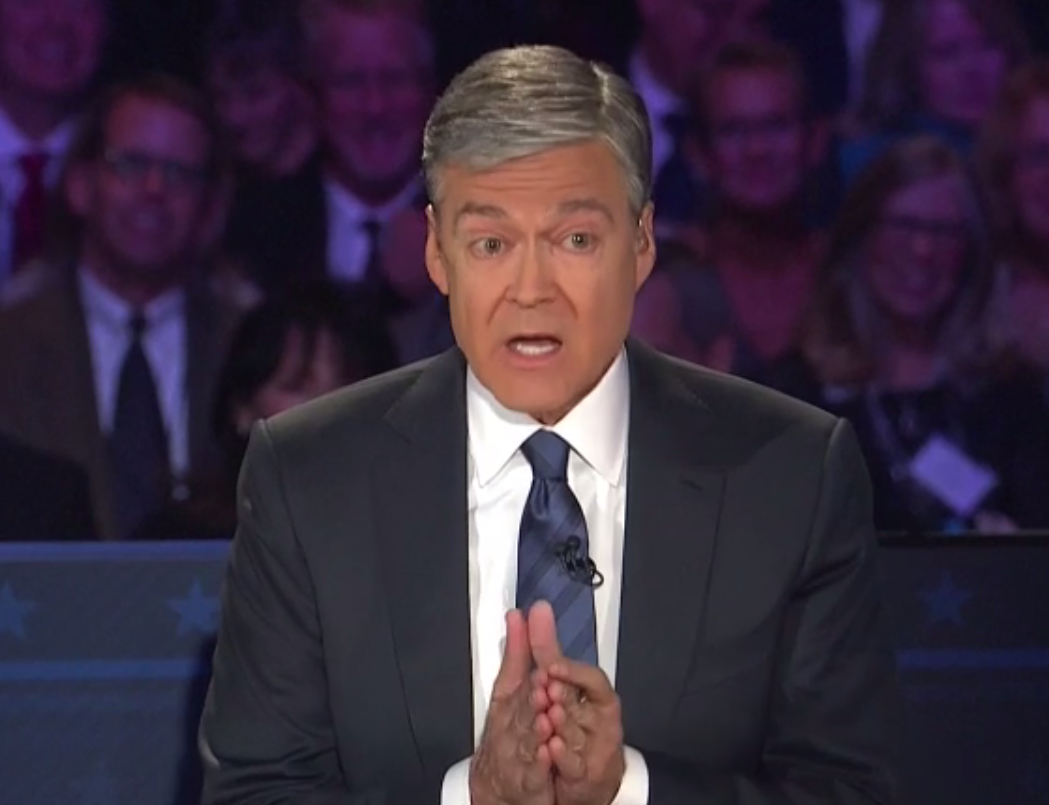It is usually a fool’s errand to make any predictions about something as fluid as a presidential campaign, but I’m comfortable with this particular gaze into the crystal ball: It’ll be a while before CNBC gets to host another Republican debate.
There’s no getting around it: The network did a terrible job. From the moment people tuned in at 8 p.m. and saw a bunch of barely articulate anchors jabbering incoherently for an endless 15 minutes right to the second the debate met a merciful end, CNBC presented a textbook example of what not to do. (One quick aside: Can we please do away with the notion that a billionaire-worshiping network that helped launch the Tea Party is any kind of objective arbiter when it comes to the American economy?) The debate was so rowdy, shoddily paced and out of control that the ostensible subject of the evening—the economy—got hopelessly lost in the shuffle. Most damningly, the anchors frequently failed to call out the candidates on easily checkable misstatements. Ben Carson, for instance, got a complete pass after he falsely claimed that he had no real ties to a shady nutritional supplement company. And, in the night’s most embarrassing moment, moderator Becky Quick actually asked Donald Trump to tell her where she had read that he’d attacked Marco Rubio over an aspect of Rubio’s immigration policy after he denied ever having done so. It took Twitter practically melting down to get Quick to tell Trump later on in the debate that the attack was actually on his own website.
Perhaps sensing blood in the water, nearly all of the candidates pounced, brutally turning on the moderators over and over again and accusing them of asking needlessly antagonistic personal questions. Chris Christie and Ted Cruz were especially successful at this. No Republican has ever lost a debate by attacking the media, but Wednesday’s complaints were especially relentless—a sure sign of a moderating team that had lost the plot. It’s telling that the last GOP debate on CNN had just as many personal, negative questions for the candidates, but Jake Tapper didn’t find himself quite so excoriated. The CNBC crew seemed totally unsure about how to handle the assault, sometimes returning the hostility and sometimes letting the wave of bile wipe them out. Ironically, some of their questions were quite substantive, but no matter.
The other indisputable loser of the night was Jeb Bush. Bush has had a horrible few weeks, as his poll numbers have sunk deeper and deeper and an air of doom has begun hovering around his campaign. If his debate performance is any indication, he’s toast. Bush wound up speaking less than every candidate except Rand Paul. He disappeared from the conversation for vast stretches at a time, giving every indication of a man who has lost the ability to figure his audience out and who has stopped trying. Nearly every other candidate, from Mike Huckabee to Carly Fiorina and in between, had at least one applause-getting moment, but not Bush. His sole attempt at offense—an attack on Rubio’s lax voting record in the Senate—backfired miserably, with Rubio deftly neutralizing it. It was like watching a student crush his old teacher. Rubio, incidentally, turned in his usual reliable effort. His economic policy may be faintly bananas, but his political instincts are unnervingly good.
It was a sign of how strange the debate was that the two men who are the actual leaders in the GOP polls, Donald Trump and Ben Carson, felt like such afterthoughts. Trump was noticeably more rehearsed and subdued than he has been in the past; this was the first debate where he didn’t feel like the person everyone in the room was thinking about. Carson mumbled and muddled his way through like he always does, save for one exchange in which—you guessed it—he complained about the questions he was getting, to thunderous applause from the crowd.
As for that old standby, “policy”? Well, you won’t be surprised to hear that all of the candidates want to radically cut taxes, blow a huge hole in the federal finances, cripple the government and hope it all works out. Their answer to most questions was a variation on “whatever we do, the government shouldn’t be involved.” Things didn’t get too much more specific than that. The debate was so chaotic that it was ultimately impossible for people wondering what their own economic situation would actually look like under the GOP to come away with any coherent picture.
Besides hastening the death rattle of the Jeb Bush campaign, it’s hard to immediately know what the impact of Wednesday’s debate will be. I’ll be curious to see how Christie and Cruz went down, and whether or not Rubio, who has been consolidating establishment support, will see any other tangible benefits from the night. But whatever happens, let’s all say a prayer for the folks at CNBC. They are not going to have a fun Thursday morning.

